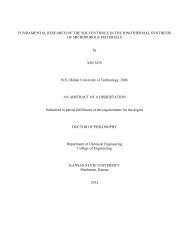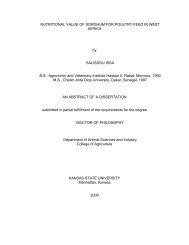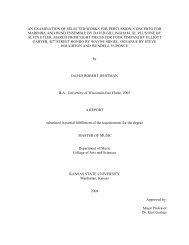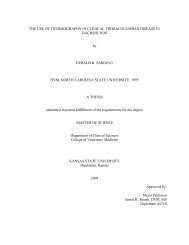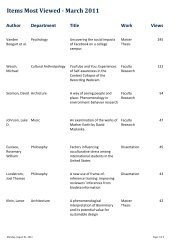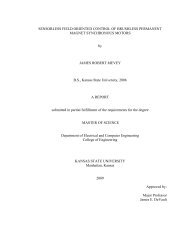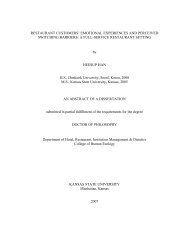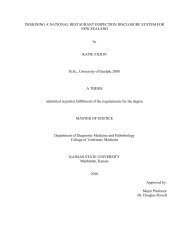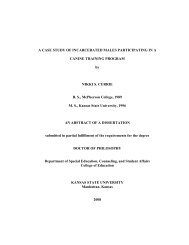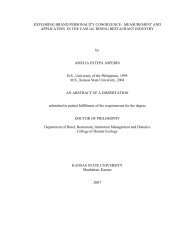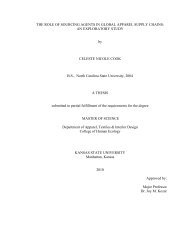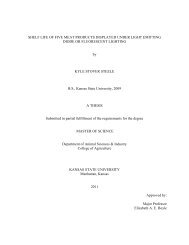SELFISH INTENTIONS - K-REx - Kansas State University
SELFISH INTENTIONS - K-REx - Kansas State University
SELFISH INTENTIONS - K-REx - Kansas State University
You also want an ePaper? Increase the reach of your titles
YUMPU automatically turns print PDFs into web optimized ePapers that Google loves.
conception of marriage.” 25 It was relatively easy for a man simply to walk away from a<br />
marriage. Others might have left behind a family in England and established new ones in the<br />
colonies. One such scenario might occur when a man moved to another colony and started a new<br />
family. In doing so, he would leave his family behind in the care of the local community. As<br />
VanBurkleo contends, “The risk of bigamy charges were small, and the social and economic cost<br />
of bad marriages were steep. Alternatively, couples might undertake customary divorce (for<br />
instance, by returning rings in the presence of witnesses) and notify officials of the deed, but the<br />
practice weakened state control over families and was discouraged.” 26 Certainly, lawmakers<br />
fought against this notion of fluid marriage. In the Massachusetts Bay Colony, officials went so<br />
far as to deport men if they feared they were being unfaithful to their wives back in England or<br />
were taking an additional spouse. Additionally, lawmakers singled out men who performed lewd<br />
acts, attempted marriage, or lived under suspicion of uncleanness and ordered them to return to<br />
their wives or pay a hefty fine. Therefore non-Anglican lawmakers allowed divorce in order to<br />
assist sensible remarriages as well as to strengthen political control over marriage and to<br />
discourage flight from their colony.<br />
The provision for divorce was particularly important to women who, if abandoned, faced<br />
an uncertain future. Under coverture, the couple’s property did not belong to her, her children<br />
were not legally in her custody, and the possibility of destitution was all too real. Both the<br />
separate maintenance agreements allowed in the South, and the absolute divorce allowed in New<br />
England, offered a way out of an impossible situation. As VanBurkleo notes, “In the main,<br />
judges aimed less to ensure individual happiness than to bolster the family’s ability to maintain<br />
25 VanBurkleo, 14.<br />
26 Ibid.<br />
7



